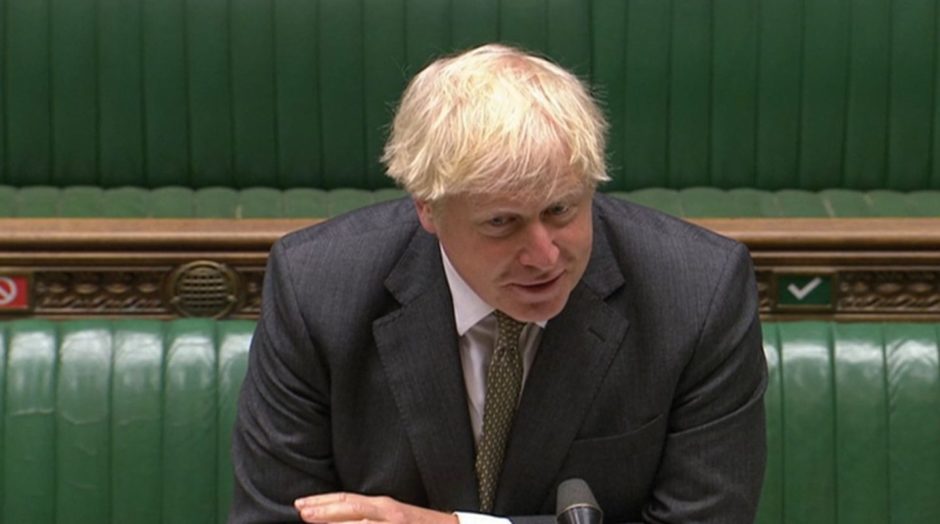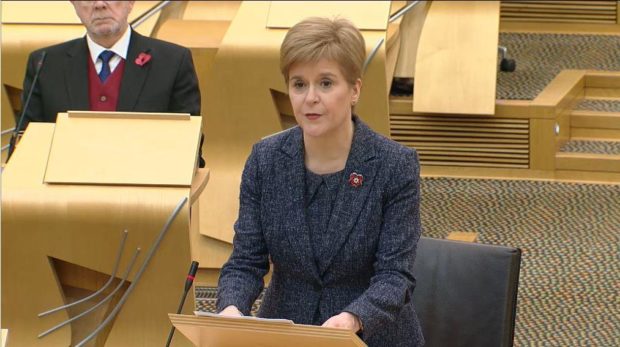When politics is driven by the search for slight and offence, a key skill is to turn relatively good news into the source of outrage and offence.
Anyone who has been around Scottish politics for more than five minutes should know that.
It was reasonable, of course, to take issue with the timing. Those with most right to be aggrieved were in those parts of England, mainly the north, which have been subjected to something that looks very like “lockdown” for several weeks. That was the issue on which Andy Burnham and others fought for more money to compensate.
Announcing a month ago that furlough would continue across the UK beyond the end of October would have been a much better option but it was one that the Treasury, for obvious reasons, resisted. Then the infection numbers got worse, the situation changed and so did the response on furlough. So far, so reasonably clear.
As a strong advocate of the Scotland Office’s place within the UK Government, I find this a classic example of where it could have played a key role. It should be the eyes and ears of Government in recognising potentially divisive issues before they arise. For that to be effective, however, there must also be receptive listeners at the Whitehall end.”
The issue on which Scottish indignation has been aroused is not the immediate furlough extension but the “what if” of a subsequent lockdown. There should never have been any doubt about the response to that and the UK Government should have spotted that the elephant trap of ambiguity would be exploited to the full.
Questions for Nicola Sturgeon…
If the principle of “lockdown equals furlough” applies across the UK at present, then it should equally apply to any part of the UK which subsequently finds itself in that unfortunate position. If that had been clear at the weekend then a lot of subsequent posturing about a hypothesis could have been avoided.
Boris Johnson should be grateful to Douglas Ross, Scottish Tory leader but speaking as a back-bencher, for digging him out the hole before it got any deeper. However, a better solution would lie in such issues being foreseen rather than reacted to, only after the seeds of grievance have been sown.
As a strong advocate of the Scotland Office’s place within the UK Government, I find this a classic example of where it could have played a key role. It should be the eyes and ears of Government in recognising potentially divisive issues before they arise. For that to be effective, however, there must also be receptive listeners at the Whitehall end.
Most of the focus on expanding the Scotland Office’s role has been on better communications within Scotland about what the UK Government is delivering here. However, it is at least as important to have effective communications in the other direction, to signal opportunities for delivery and also forestall the kind of confusion we have seen this week.
With a bit of goodwill and mutual understanding, there was no need for a row about furlough and lockdown. But that is not the Scotland we live in and the UK Government needs to avoid setting traps for itself to walk into.”
There are also questions for Nicola Sturgeon to answer. Prior to the Prime Minister’s clarification about future potential lockdowns, I found it quite bizarre that she was threatening one for the whole of Scotland in order to qualify for furlough money while it was available – what she described as a “failsafe approach”. It was no such thing.
The idea that sectors of the economy, and regions of Scotland, would be closed down so as to qualify for financial advantages which might not (she claimed) be available later displays an alarming disregard for economic and social realities. Businesses need to operate and people need to work for reasons that go beyond arguments about furlough schemes.
Fragile confidence
And what is “lockdown”, anyway? Even as things stand, the restrictions in England and anything mentioned so far in Scotland are significantly different from those imposed in March. Nobody has, for example, been talking about closing schools or banning events in empty stadia.
Instead of talking about lockdowns, the furlough scheme should apply to businesses which are prevented or limited by regulations from trading, regardless of where they are in the UK – but also regardless of whether or not a blanket prohibition has been declared under the imprecise lockdown heading.
It has taken far too long to achieve a regionalised approach in Scotland which recognizes the vastly different circumstances which prevail in different parts of the country. The tiered system belatedly recognizes that closing things down in Hamilton should not automatically have the same implications for Helmsdale.
To even hint at retreating from that more nuanced approach in order to make a political point will do nothing for fragile confidence in areas where there are still some signs of economic life. Ms Sturgeon should stop suggesting otherwise.
With a bit of goodwill and mutual understanding, there was no need for a row about furlough and lockdown. But that is not the Scotland we live in and the UK Government needs to avoid setting traps for itself to walk into.
Brian Wilson is a journalist, businessman and former Labour MP and government minister.


